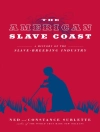Winner of a 2017 Louisiana Endowment for the Humanities Book of the Year Award
This book represents the first time that the known history and a significant amount of new information has been compiled into a single written record about one of the most important eras in the south-central coastal bayou parish of Terrebonne. The book makes clear the unique geographical, topographical, and sociological conditions that beckoned the first settlers who developed the large estates that became sugar plantations. This first of four planned volumes chronicles details about founders and their estates along Bayou Terrebonne from its headwaters in the northern civil parish to its most southerly reaches near the Gulf of Mexico. Those and other parish plantations along important waterways contributed significantly to the dominance of King Sugar in Louisiana.
The rich soils and opportunities of the area became the overriding reason many well-heeled Anglo-Americans moved there to join Francophone locals in cultivating the crop. From that nineteenth century period up to the twentieth century’s side effects of World Wars I and II,
Hard Scrabble to Hallelujah, Volume I: Bayou Terrebonne describes important yet widely unrecognized geography and history. Today, cultural and physical legacies such as ex-slave-founded communities and place names endure from the time that the planter society was the driving economic force of this fascinating region.
Circa l’autore
Donald W. Davis has been involved for more than fifty years in coastal-related research on the wide array of renewable and nonrenewable resources vital to the use of the wetlands. His work has appeared in numerous journals including Annals of the American Association of Geographers, Shore & Beach, Journal of Soil and Water Conservation, Louisiana Conservationists, and Louisiana History. He is coauthor of Asian-Cajun Fusion: Shrimp from the Bay to the Bayou and Ain’t There No More: Louisiana’s Disappearing Coastal Plain, both published by University Press of Mississippi, and author of Washed Away? The Invisible Peoples of Louisiana’s Wetlands.












